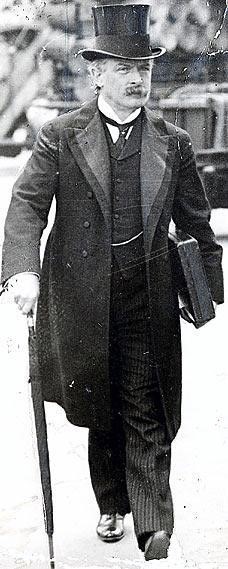Lloyd George precedent on police pay – ‘doubly instructive’ as Gordon Brown faces police strike
In a special report on crime in today’s Guardian newspaper (23 January 2008), columnist Allegra Stratton looks back at the history of police strikes and the threat of police strike ballots as background to the present dispute between the Police Federation and the government.
Introducing the subject, Stratton takes us back to the year 1918 when David Lloyd George, as prime minister, was facing the prospect of competing public sector demands for increased pay and expenditure as many thousands of British soldiers were being demobbed at the end of the Great War. The police actually did strike in 1918 and 1919. It led to the government passing the 1919 Police Act which outlawed the right to strike of police officers but created the Police Federation of England and Wales as the legitimate outlet for addressing and resolving police grievances. The Lloyd George government also granted the police a substantial pay rise, doubling their wages.
Stratton’s article quotes Professor Robert Reiner of the London School of Economics to the effect that the 1918 to 1919 unrest is doubly instructive. “The police won’t strike because they know the public are worried about the chaos it would cause.” Although Reiner says the consequences of a strike “are variable”. “In London 1918 there was no noticeable effect on crime and disorder, in 1919, just a year, later there was rioting.”
You can read the whole of the article at: http://www.guardian.co.uk/crime/article/0,,2245473,00.html
There are also some interesting pages about the police strikes of 1918-1919 at http://en.wikipedia.org/wiki/British_police_strikes_in_1918_and_1919
